Braces are a fantastic tool for achieving a straight, beautiful smile, but maintaining good oral hygiene during treatment is crucial. With brackets and wires creating more areas for food and plaque to accumulate, it’s essential to take extra care to keep your teeth and gums healthy.
In this guide, we’ll cover everything you need to know about taking care of your braces, from brushing techniques to foods to avoid, ensuring you achieve the best possible results from your orthodontic treatment.
Why Is Oral Hygiene Important with Braces?
Braces create small spaces where food particles and bacteria can get trapped, increasing the risk of cavities, gum disease, and bad breath. Poor oral hygiene can also lead to white spots (decalcification) on your teeth after braces are removed. By maintaining a solid cleaning routine, you can keep your smile healthy throughout your orthodontic journey.
Brushing and Flossing with Braces
Brushing Techniques
Brushing properly with braces requires a bit more time and attention. Follow these steps to ensure a thorough clean:
- Use a Soft-Bristled Toothbrush or Electric Toothbrush: A soft-bristled brush is gentle on your braces and gums while effectively removing plaque. An electric toothbrush can make the process even easier.
- Brush at a 45-Degree Angle: Angle your brush towards the brackets to reach under the wires and clean around the braces.
- Brush After Every Meal: Since food easily gets stuck in braces, it’s best to brush after eating to prevent plaque buildup.
- Use Fluoride Toothpaste: Fluoride helps strengthen enamel and prevent cavities.
- Don’t Forget Your Gums and Tongue: Bacteria can accumulate on your tongue and along the gum line, so be sure to clean these areas as well.

Flossing with Braces
Flossing can be more challenging with braces, but it’s just as important as brushing. Here are some tips to make it easier:
- Use a Floss Threader: This tool helps guide floss under the wires, allowing you to clean between teeth more effectively.
- Try Orthodontic Floss or Water Flossers: Special floss designed for braces or a water flosser can make the process quicker and easier.
- Floss at Least Once a Day: Nighttime flossing is essential to remove any buildup from the day.
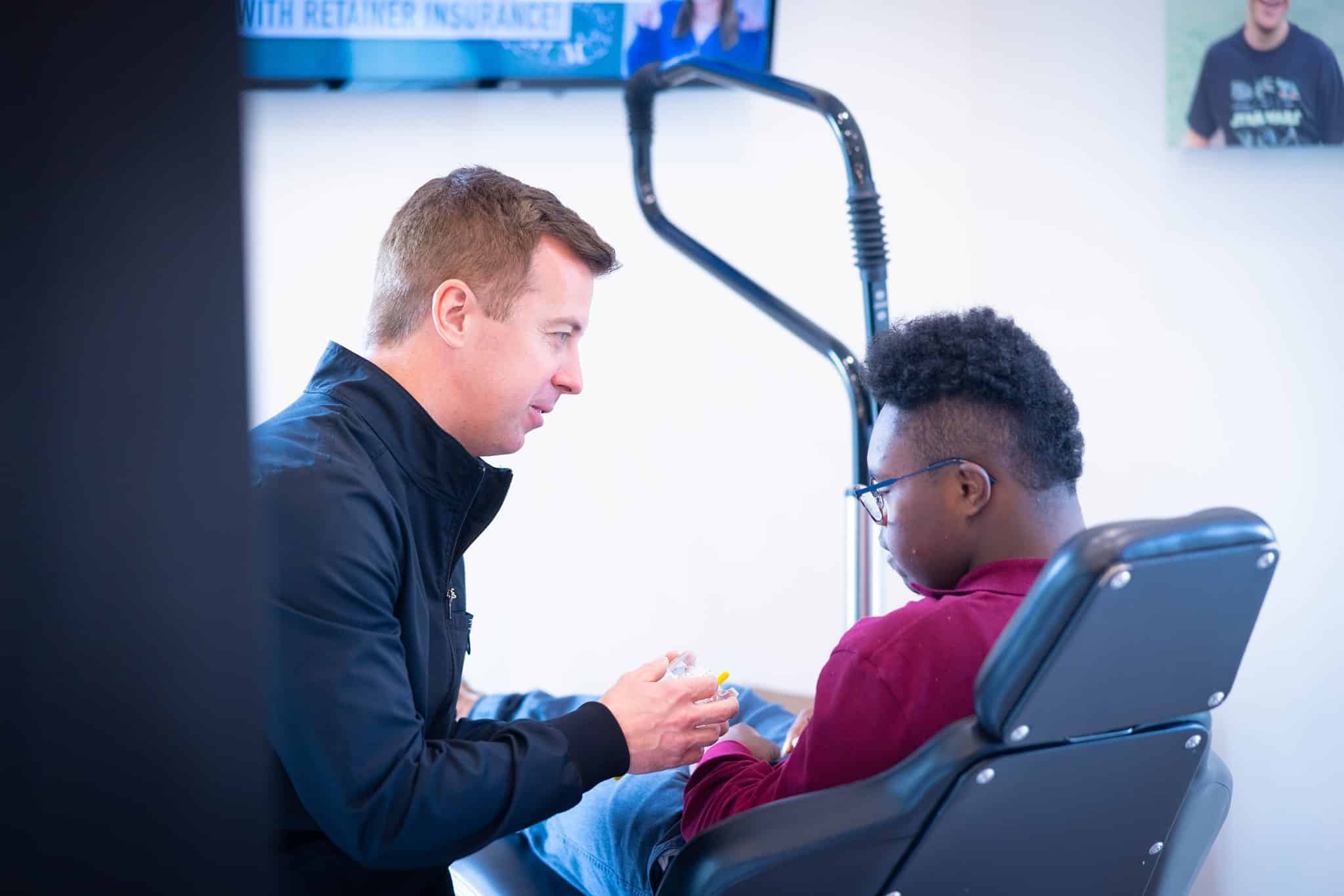
Foods to Avoid with Braces
Certain foods can damage braces or make cleaning more difficult. Here’s what you should avoid:
Hard Foods:
- Ice
- Hard candies
- Nuts
- Popcorn kernels

Sticky Foods:
- Caramel
- Chewy candy
- Gum
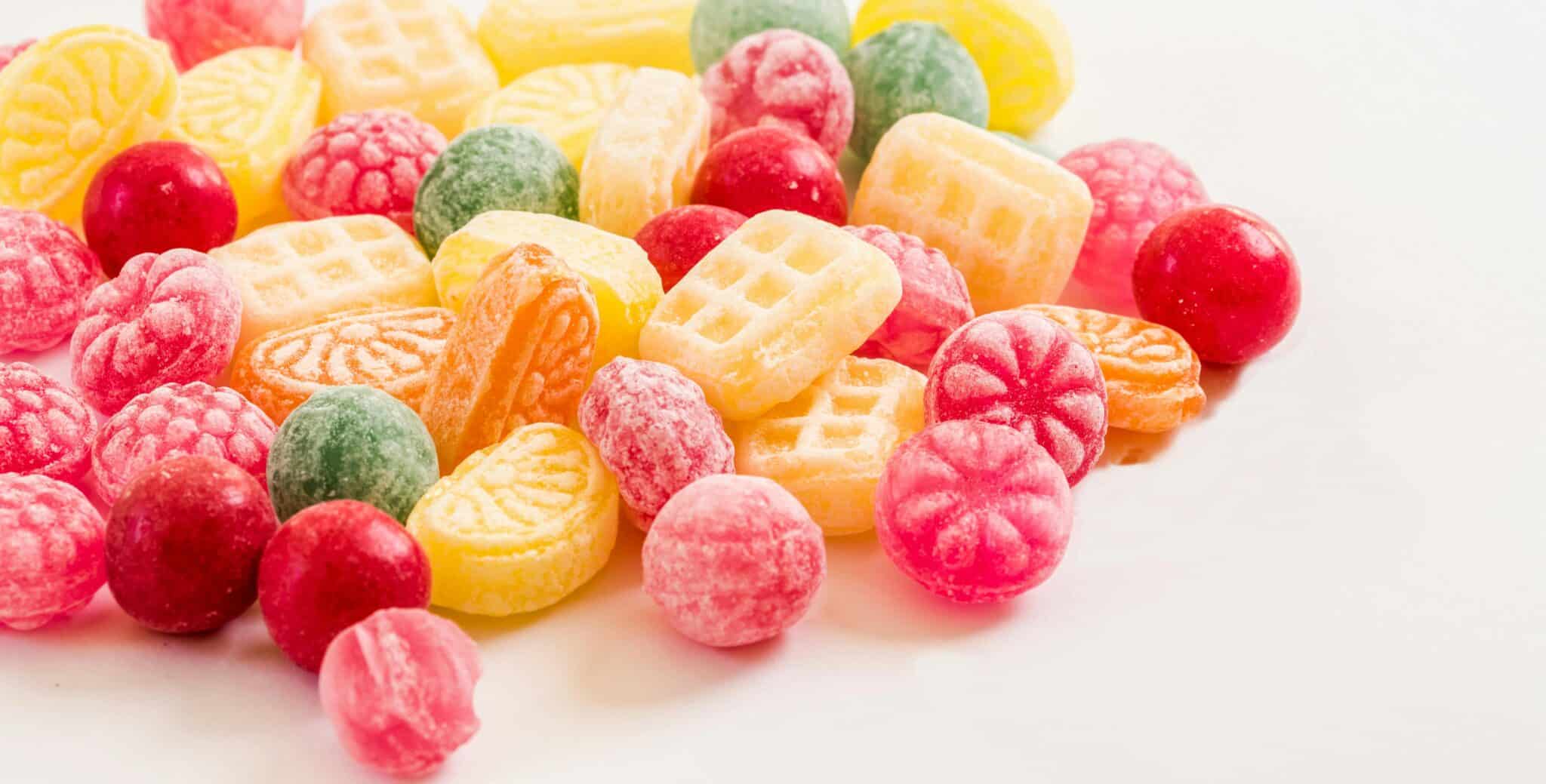
Sugary Foods and Drinks:
- Soda
- Sports drinks
- Sugary snacks (limit these to prevent cavities)

Instead, opt for soft foods like yogurt, mashed potatoes, bananas, and cooked vegetables to avoid damaging your braces.
Orthodontic Hygiene Tools That Help
Investing in the right tools can make cleaning your braces much easier:
Interdental Brushes: These small brushes help clean between brackets and wires.
Mouthwash with Fluoride: Helps reduce bacteria and strengthen enamel.
Water Flosser: Uses a stream of water to remove food particles and plaque from hard-to-reach places.
Handling Common Braces Issues
Even with proper care, you may encounter some common braces-related issues:
Dealing with Soreness
- Rinse with warm salt water to relieve discomfort.
- Use orthodontic wax to cover any brackets or wires that irritate your mouth.
- Stick to soft foods when experiencing soreness after adjustments.
Managing Broken Brackets or Wires
- If a bracket comes loose, cover it with orthodontic wax and schedule an appointment with your orthodontist.
- If a wire pokes out, try using a clean pencil eraser to push it back into place temporarily.
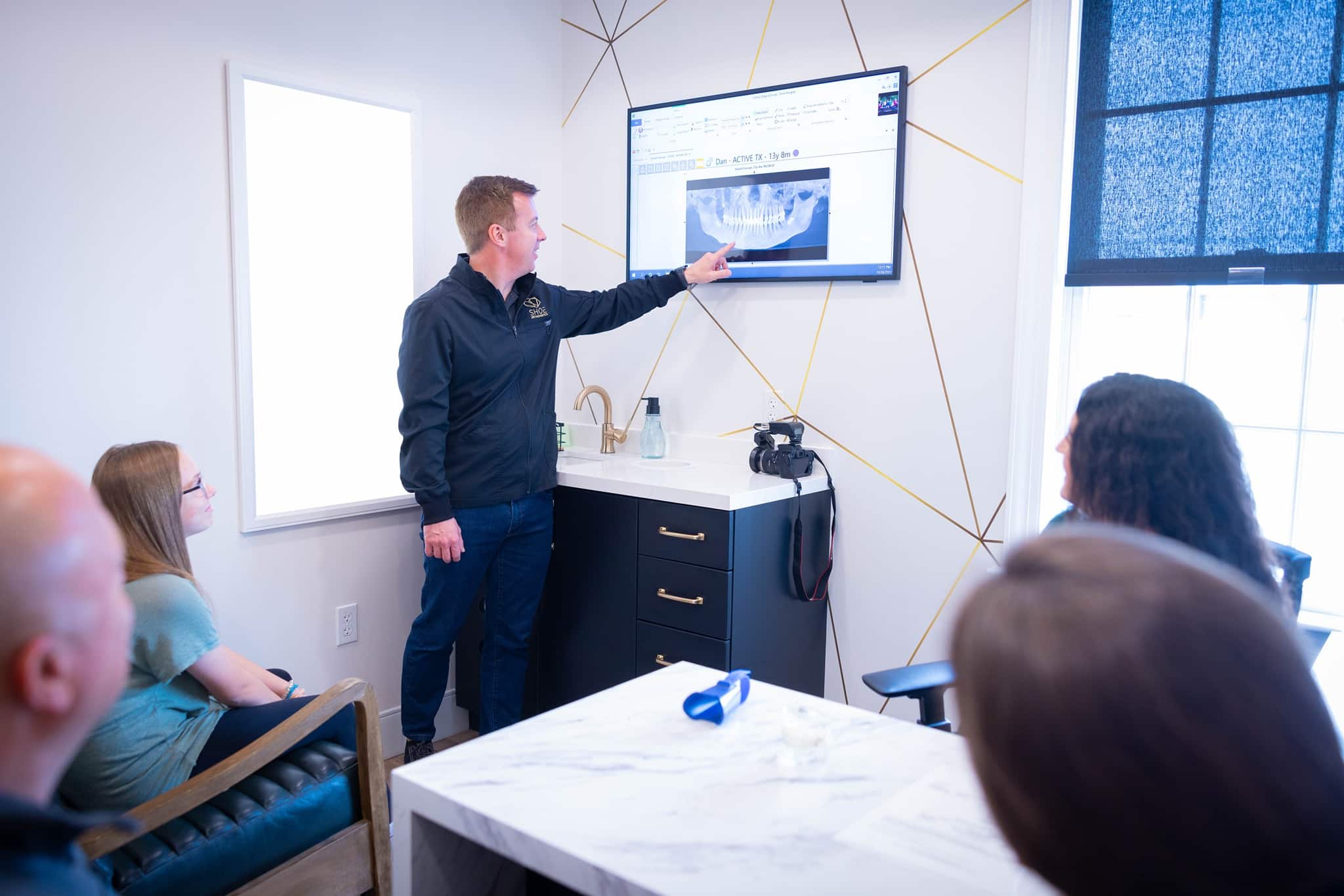
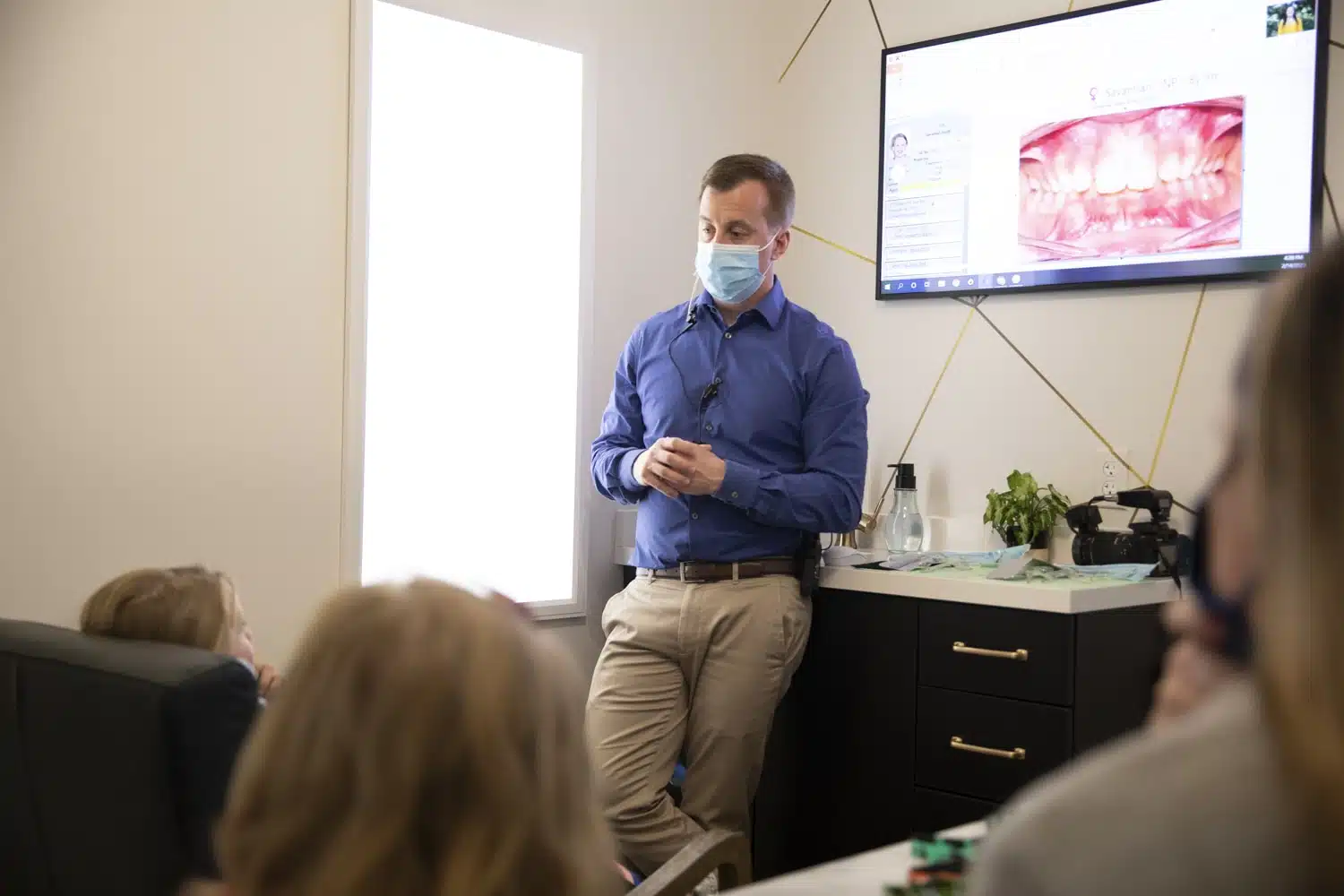
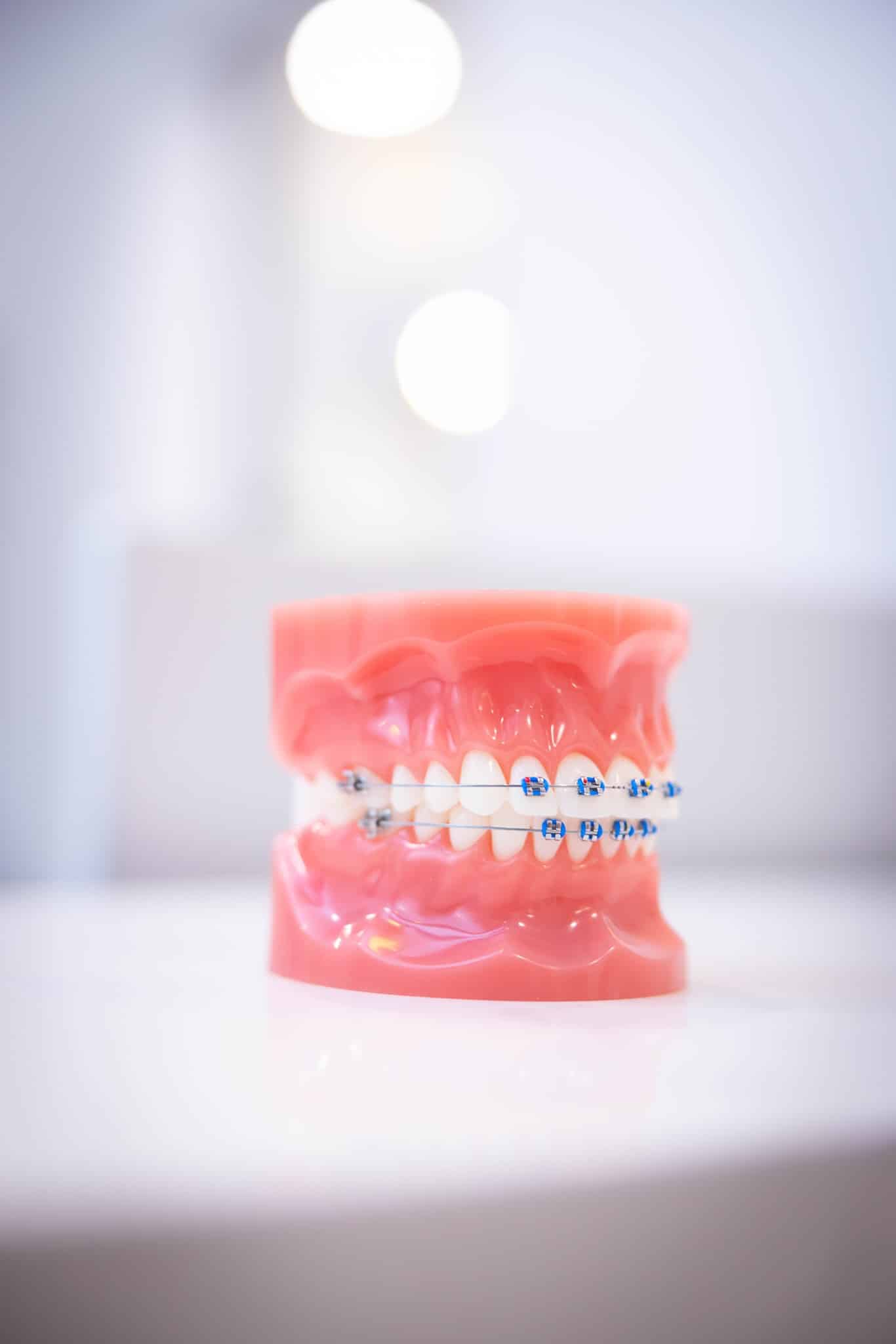
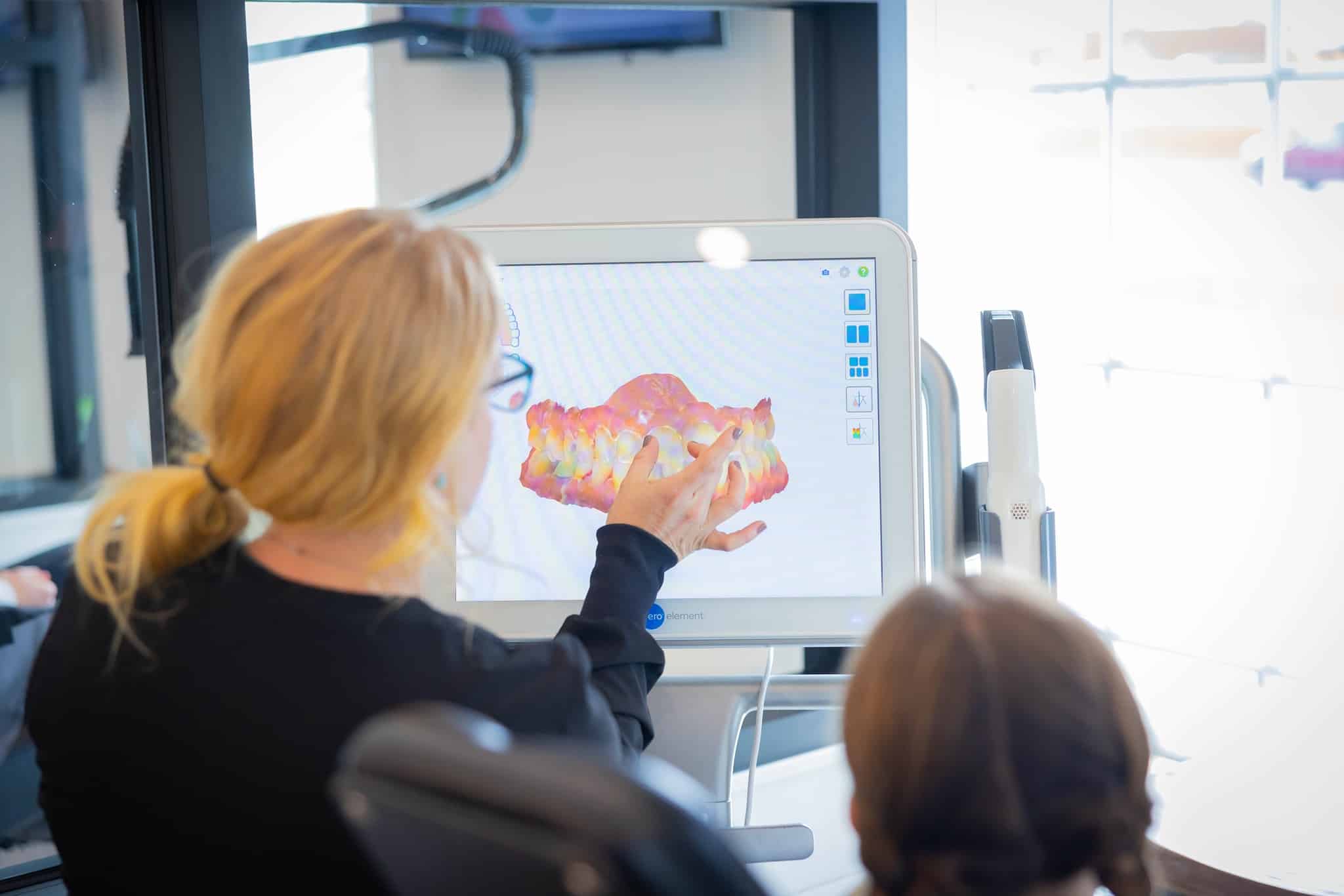

Handling Common Braces Issues
Even with proper care, you may encounter some common braces-related issues:
Dealing with Soreness
- Rinse with warm salt water to relieve discomfort.
- Use orthodontic wax to cover any brackets or wires that irritate your mouth.
- Stick to soft foods when experiencing soreness after adjustments.
Managing Broken Brackets or Wires
- If a bracket comes loose, cover it with orthodontic wax and schedule an appointment with your orthodontist.
- If a wire pokes out, try using a clean pencil eraser to push it back into place temporarily.
The Importance of Regular Orthodontic Visits
Routine orthodontic checkups are essential to ensure your treatment is progressing correctly. Your orthodontist will:
- Adjust wires to continue shifting your teeth properly.
- Check for any potential issues, such as plaque buildup or cavities.
- Provide recommendations for improved hygiene habits.
Missing appointments or neglecting your oral care routine can prolong your treatment time, so staying consistent is key!

FAQs About Braces Hygiene
Q: Can I use a regular toothbrush, or do I need a special one? A: A soft-bristled or electric toothbrush is recommended to effectively clean around your braces without damaging them.
Q: How often should I replace my toothbrush? A: Replace your toothbrush every 3-4 months or sooner if the bristles become frayed.
Q: Is mouthwash necessary if I brush and floss? A: While not required, using a fluoride mouthwash can help reduce bacteria and strengthen enamel.
Q: Can I still get cavities with braces? A: Yes! Braces don’t prevent cavities, so maintaining a good oral hygiene routine is essential.
Maintaining a Healthy Smile for the Best Results
Taking care of your braces isn’t just about keeping them clean—it’s about ensuring the health of your teeth and gums for a beautiful smile once your treatment is complete. By following these hygiene tips, avoiding damaging foods, and using the right tools, you’ll set yourself up for success.
Ready to Take the Best Care of Your Braces?
If you have questions about your braces care routine or need expert guidance, our team at [Your Clinic Name] is here to help. Schedule your next orthodontic checkup today and let us assist you in achieving the perfect smile! Call us today or click here to book your consultation. Your dream smile is just an appointment away!





